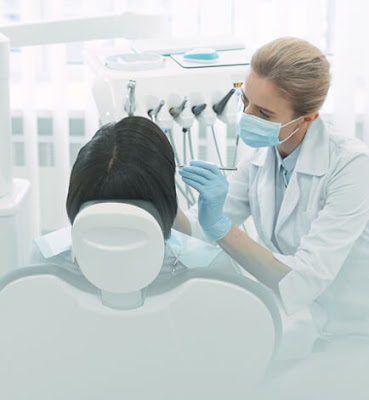Sleep Apnea: All That You Need to Know
Sleep apnea is a sleep disorder that can be potentially dangerous. In this disorder, the breathing of the person stops and starts repeatedly in the middle of the night. If you snore during your sleep and feel exhausted even after a full night’s sleep, it is very likely that you have sleep apnea.
To find out more about this disorder and find out what are the treatments of sleep apnea in Melbourne, read on.
What are the symptoms of sleep apnea?
Sleep apneas are of various types – obstructive and central sleep apneas being the most common. When it comes to signs and symptoms of the disorder, there is definitely an overlap between the two. Here they are:
• Snoring loudly
• You experience episodes during your sleep when you stop breathing. These episodes are reported by the person sleeping next to you, if there is such a person.
• During your sleep, you gasp for air
• You wake up in the morning with a dry mouth
• A headache in the morning
• Problem with sleeping through the night, that is, insomnia
• Excessive sleepiness during the day, also known as, hypersomnia
• Difficult to pay attention when you are awake
• Ease of irritability
What are the causes of sleep apnea?
1. Obstructive sleep apnea
This types of sleep apnea happens when the muscles in the back of the throat relax. These muscles help in supporting the soft palate, the uvula, the side walls of the throat, the tongue, and the tonsils.
When these muscles are relaxed, the airway you use for breathing narrows down or closes as soon as you take a breath. This can result in lower oxygen levels in the blood. When your brain notices, it wakes you up so that your airways can open again and you can inhale. However, in most cases this awakening is so short that you may not even remember it.
If you have this type of sleep apnea, you may even snort, gasp or choke. The pattern can be repetitive as little as 5 times and as much as 30 times every hour during the entire night. This impairs the ability of the brain to fall into deep, restful phases of sleep, which can make you irritable during the day.
2. Central sleep apnea
This disorder is less common. During this, when you fall asleep, your brain is unable to send signals to your breathing muscles to open your airways. As a result, for a short period of time, you stop breathing. This can result in shortness of breath and it might wake you up. It may be intense enough that you struggle to fall asleep or stay asleep for the rest of the night.What are the risk factors for sleep apnea?
Sleep apnea can occur in anyone, including children. However, there are certainly some factors that increase the risk for it. These are:• Excessive weight: obesity is one of the major risk factors for developing sleep apnea. If there are excessive deposits of fat around your upper airway, they can result in obstruction of breathing.
• Circumference of neck: people who have thicker necks tend to have narrow airways. If someone has enlarged tonsils or adenoids, it can also result in narrow airways.
• Genetic problems: it is possible that you have inherited a narrow airway.
• Males: men are more predisposed to having obstructive sleep apnea. In fact, they carry two to three times more risk than women. Women are considered under more risk if they are overweight or menopause.
• Age: older people are more likely to suffer from sleep apnea.
• Family history: if someone in your family has the disorder, there is a higher risk of you having it too.
• Using alcohol, sedatives: people who use these drugs have more chances of developing obstructive type of apnea because these substances relax the muscles in the throat.
• Smoking: people who smoke regularly are also predisposed to developing apnea. This is due to the fact that smoking increases the inflammatory response of the body and also result in fluid retention.
• Congestion of nose: if you have trouble breathing through your nose, whether it is due to anatomical abnormalities or because of allergies, there is a good chance you might develop obstructive sleep apnea too.
• Heart problems: people who have had congestive heart failure episodes are more predisposed to developing central sleep apnea.
• Use of narcotic drugs: people who use opioid based medicines, especially ones that have a longer acting span, can also increase chances of central sleep apnea.
• Stroke: people who have suffered a stroke have a higher chance of developing central sleep apnea.
What are the complication of sleep apnea?
Sleep apnea is a dangerous medical problem and unchecked, it can cause further issues. For instance:1. Fatigue during the day : due to repeated awakening during the night, your sleep will not enter the deep, restful phase. This can result in irritability during the day, drowsiness, and fatigue. You may even have problems with concentrating, you may find yourself falling sleep during work hours. People with sleep apnea in Melbourne also have an increase chance of getting into car accidents.
2. Heart problems: the sudden decrease in the oxygen levels of your blood can cause an increase in blood pressure as well strain your entire cardiovascular system. This can result in several problems, including hypertension, atrial fibrillation, hypoxia, hypoxemia, and even sudden death.
3. Diabetes: sleep apnea also increases the chances of developing insulin resistance, which can cause type 2 diabetes.




Prodental Clinic providing you quality dental care, the right dental treatment plan, and dental care that ensures that your smile is always bright and your teeth are always healthy. We are among the best leading platform believe to deliver the best quality service.
ReplyDeleteFor more information, you may directly visit our office or you visit on the link mentioned below-
root canal and crown cost
how long do crowns last
dental check up cost